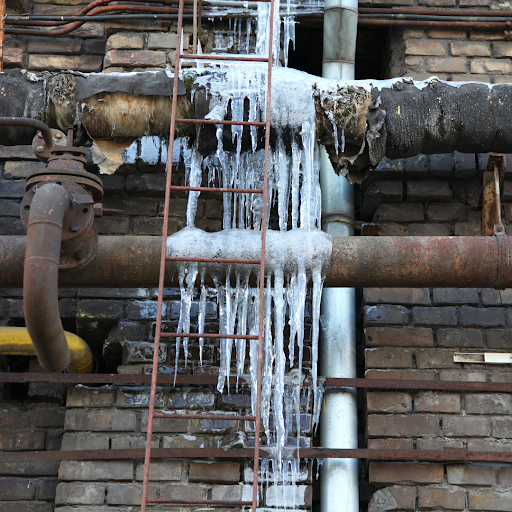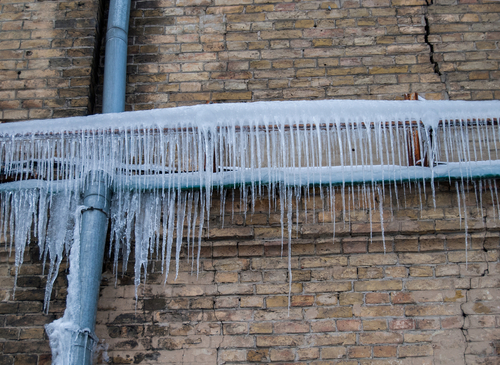Crucial Advice for Avoiding Frozen Pipes in Winter Conditions
Crucial Advice for Avoiding Frozen Pipes in Winter Conditions
Blog Article
Presented here on the next paragraphs yow will discover more very good help and advice with regards to How to Prevent Your Pipes From Freezing.

Winter can ruin your plumbing, especially by freezing pipes. Here's just how to avoid it from occurring and what to do if it does.
Intro
As temperature levels decrease, the danger of frozen pipes increases, potentially leading to expensive fixings and water damages. Comprehending just how to prevent icy pipes is vital for house owners in cold climates.
Avoidance Tips
Insulating prone pipes
Cover pipelines in insulation sleeves or utilize warm tape to safeguard them from freezing temperature levels. Concentrate on pipes in unheated or external areas of the home.
Home heating methods
Keep indoor spaces properly heated, specifically locations with pipes. Open closet doors to allow warm air to circulate around pipelines under sinks.
Exactly how to determine icy pipes
Look for lowered water flow from taps, unusual smells or noises from pipes, and visible frost on revealed pipes.
Long-Term Solutions
Structural adjustments
Think about rerouting pipelines away from exterior wall surfaces or unheated areas. Include additional insulation to attics, basements, and crawl spaces.
Upgrading insulation
Purchase high-quality insulation for pipes, attics, and walls. Appropriate insulation aids maintain regular temperature levels and lowers the danger of icy pipes.
Shielding Exterior Pipes
Yard pipes and outside taps
Disconnect and drain pipes yard pipes prior to wintertime. Mount frost-proof spigots or cover outdoor faucets with insulated caps.
Comprehending Frozen Pipes
What causes pipelines to ice up?
Pipelines ice up when revealed to temperature levels below 32 ° F (0 ° C) for extended periods. As water inside the pipes ices up, it expands, putting pressure on the pipe wall surfaces and potentially creating them to rupture.
Dangers and problems
Icy pipes can result in water supply disturbances, residential or commercial property damages, and pricey repairs. Ruptured pipes can flooding homes and create substantial structural damage.
Indications of Frozen Water Lines
Recognizing frozen pipelines early can stop them from rupturing.
What to Do If Your Pipelines Freeze
Immediate activities to take
If you presume icy pipes, keep faucets available to alleviate pressure as the ice thaws. Utilize a hairdryer or towels soaked in warm water to thaw pipes gradually.
Conclusion
Preventing frozen pipelines needs positive actions and fast responses. By understanding the reasons, indicators, and preventive measures, home owners can shield their pipes during winter.
5 Ways to Prevent Frozen Pipes
Drain Outdoor Faucets and Disconnect Hoses
First, close the shut-off valve that controls the flow of water in the pipe to your outdoor faucet. Then, head outside to disconnect and drain your hose and open the outdoor faucet to allow the water to completely drain out of the line. Turn off the faucet when done. Finally, head back to the shut-off valve and drain the remaining water inside the pipe into a bucket or container. Additionally, if you have a home irrigation system, you should consider hiring an expert to clear the system of water each year.
Insulate Pipes
One of the best and most cost-effective methods for preventing frozen water pipes is to wrap your pipes with insulation. This is especially important for areas in your home that aren’t exposed to heat, such as an attic. We suggest using foam sleeves, which can typically be found at your local hardware store.
Keep Heat Running at 65
Your pipes are located inside your walls, and the temperature there is much colder than the rest of the house. To prevent your pipes from freezing, The Insurance Information Institute suggests that you keep your home heated to at least 65 degrees, even when traveling. You may want to invest in smart devices that can keep an eye on the temperature in your home while you’re away.
Leave Water Dripping
Moving water — even a small trickle — can prevent ice from forming inside your pipes. When freezing temps are imminent, start a drip of water from all faucets that serve exposed pipes. Leaving a few faucets running will also help relieve pressure inside the pipes and help prevent a rupture if the water inside freezes.
Open Cupboard Doors
Warm your kitchen and bathroom pipes by opening cupboards and vanities. You should also leave your interior doors ajar to help warm air circulate evenly throughout your home.

I am very fascinated with Winter Plumbing Precautions: Preventing Frozen Pipes and I'm hoping you enjoyed our article. Are you aware of anybody else who is excited about the topic? Take a moment to promote it. Thanks a lot for being here. Don't forget to check up our website back soon.
Contact Us Now Report this page